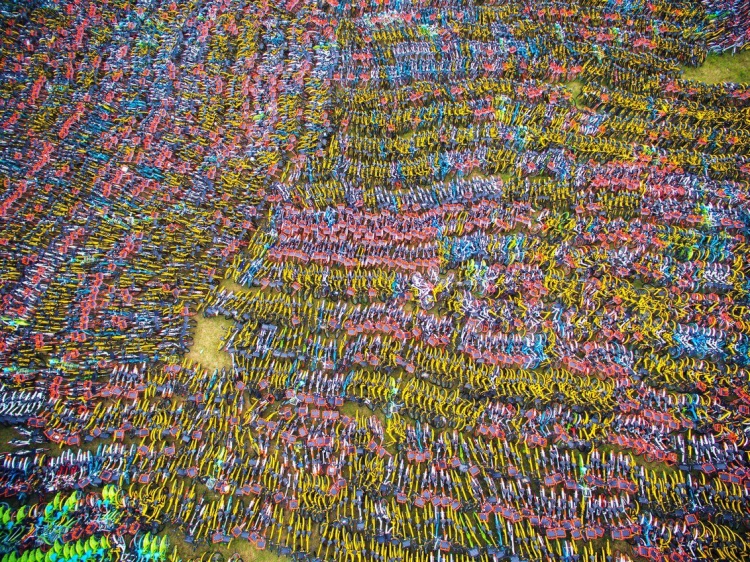Chinese Based Share Riding Bikes Experiment in US

As we slowly destroy Mother Earth, engineers and entrepreneurs alike are scrambling to create alternatives to our detrimental practices to save her... or at least prolong her life. Some of our species's brightest have begun building projects with their environmental impact on the forefront of the brand. Among them are Oat Shoes, a brand creating biodegradable shoes that grow flowers, and Beyond Meat, a company challenging the meat industry. Despite these fresh new ideas, some companies have dropped the ball - one of those being the bike sharing industry. While bikes are a positive alternative to cars, as of recent they seem to be doing more harm than good in most cities. The project hasn’t worked in the Eastern Hemisphere, and it’s not looking fruitful for North America either.
Texans love cars and for a good reason; the sprawling, widespread towns make them necessary to get around. The popular city of Dallas is no different from the rest of the state. In fact, to spot a pedestrian walking from neighborhood to neighborhood is a rare sight. Regardless, Dallas has quickly become the bike share capital of North America and it has been causing major problems throughout the city. It currently has around 20,000 bikes compared to 12,000 in New York. The car-crazed city has become diluted with bikes, and in a place where cars rule, it has angered residents and visitors alike.
Dallas, Texas. Image Credit: Lauren Williams
Dockless bike sharing first started in China, allowing people to unlock bikes with an application from their phones and park them wherever they see fit. However, after the country’s third largest bike company Bluegogo rolled out around 600,000 bikes in just six months, they went bankrupt. All that remained were giant neon graveyards; it seems that the southern city of Dallas is next. The most popular companies in the city were in an "arms race" of sorts. They attempted to force one another out by placing more bikes than necessary in the city. The free market environment, in combination with a lack of bikes in the town, led bike companies to see Dallas as an untapped market.
The design of the bike in Dallas’s bike sharing epidemic is different from the Citi Bike model that has been seen in big cities across the world. The style that has taken off in Dallas is unique because it does not require docking. This is attractive to cities, as there is no need for large racks to be built (which block walkways). However, the dockless design has backfired in Dallas.
The model faces issues as it relies on personal responsibility; bikes can be left virtually anywhere. The two-wheelers are being thrown carelessly into yards, restaurant patios, and have even been tossed into the river. Because of the mistreatment of the bikes that has become almost comical, an Instagram was created for where the bikes have been left. They can be seen lined up on nearly every popular street in Dallas, cluttering the few walking paths the city has to offer.
In response to the disturbances, the mayor has threatened the companies with city interference. Mayor Rawlings has expressed that his primary concern is mostly about the aesthetic of the city; with neon bikes laying everywhere, Dallas doesn't look so beautiful.
While biking (when executed correctly) could be a fantastic alternative to gas-guzzling pickup trucks, dropping thousands of bikes in a city that does not have the infrastructure to handle it is not helpful for anyone. Despite agreeing with Mayor Rawlings's concern about how the city looks, one must wonder that if the bikes ultimately fail, where will they go? Will they fill landfills, further polluting our Earth? It seems as if the vision to limit carbon monoxide and nitrogen oxide has been lost in order to make a few bucks.
Cities like Seattle and Sacramento have both rolled out strong regulations on the bikes, but so far no city has been able to tackle the problem fully. Unfortunately, without regulations in place, it looks like Dallas along with the rest of the Earth may be better off without the bike sharing companies. Hopefully, the sunny town known for cowboys and good barbecue will also be the first to figure out how to properly organize the bikes and efficiently provide an alternative to car use.








